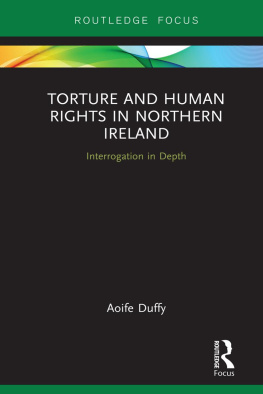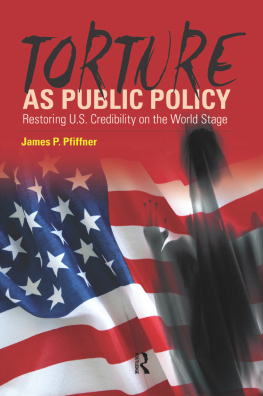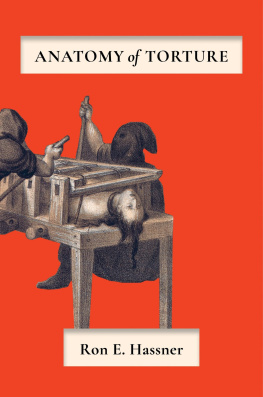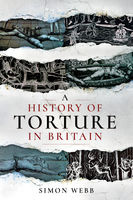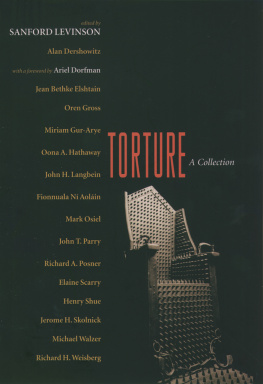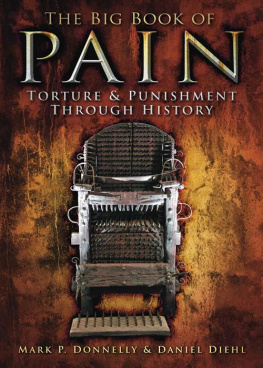Torture and Human Rights in Northern Ireland
This book presents a compelling and highly sophisticated politico-legal history of a particular security operation that resulted in one of the most high-profile torture cases in the world. It reveals the extent to which the Ireland v. United Kingdom judgment misrepresents the interrogation system that was developed and utilised in Northern Ireland. Finally, the truth about the operation is presented in a comprehensive narrative, sometimes corroborating secondary literature already in the public domain, but at other times significantly debunking aphorisms, or, indeed, lies that circulated about interrogation in depth. The book sets out the theoretical reference paradigm with respect to the culture and practice of state denial often associated with torture, and uses this model to excavate the buried aspects of this most famous of torture cases. Through the lens of a single operation, conducted twice, it presents a fascinating expos of the complicated structures of state-sponsored denial designed to hide the truth about the long-term effects of these techniques and the way in which they were authorised.
Dr Aoife Duffy is Lecturer in the School of Law, University of Essex, UK.
Torture and Human Rights in Northern Ireland
Interrogation in Depth
Aoife Duffy
First published 2019
by Routledge
2 Park Square, Milton Park, Abingdon, Oxon OX14 4RN
and by Routledge
52 Vanderbilt Avenue, New York, NY 10017
Routledge is an imprint of the Taylor & Francis Group, an informa business
2019 Aoife Duffy
The right of Aoife Duffy to be identified as author of this work has been asserted by her in accordance with sections 77 and 78 of the Copyright, Designs and Patents Act 1988.
All rights reserved. No part of this book may be reprinted or reproduced or utilised in any form or by any electronic, mechanical, or other means, now known or hereafter invented, including photocopying and recording, or in any information storage or retrieval system, without permission in writing from the publishers.
Trademark notice: Product or corporate names may be trademarks or registered trademarks, and are used only for identification and explanation without intent to infringe.
British Library Cataloguing-in-Publication Data
A catalogue record for this book is available from the British Library
Library of Congress Cataloging-in-Publication Data
Names: Duffy, Aoife, author.
Title: Torture and human rights in Northern Ireland : interrogation in depth / Aoife Duffy.
Description: Abingdon, Oxon ; New York, NY : Routledge, 2019. | Includes bibliographical references and index.
Identifiers: LCCN 2018059987| ISBN 9780367030452 (hardback) | ISBN 9780429020063 (ebook)
Subjects: LCSH: Political prisoners--Northern Ireland--History--20th century. | Torture--Northern Ireland--History--20th century. | Torture--Government policy--Great Britain--History--20th century. | Human rights--Northern Ireland--History--20th century. | Northern Ireland--History--1968-1998. | Great Britain--Politics and government--20th century.
Classification: LCC HV9649.N67 D84 2019 | DDC 363.25/4--dc23
LC record available at https://lccn.loc.gov/2018059987
ISBN: 978-0-367-03045-2 (hbk)
ISBN: 978-0-429-02006-3 (ebk)
Typeset in Times New Roman
by Deanta Global Publishing Services, Chennai, India
for my family
I would like to thank all of my family who have been my champions, and, in particular, my mother, Marita Duffy, and my son, Naoise Quealy. I am deeply indebted to my mentor and friend, Kathleen Cavanaugh, for her unwavering support over the years. I am very grateful for the education that I received at the Irish Centre for Human Rights, National University of Ireland, and the way in which its LLM programme and PhD programme opened the door to a career in academia. I have been very fortunate in the support that I have received in my new academic posting at University of Essex, and I would especially like to thank Paul Hunt and Carla Ferstman for their comments on this manuscript. Also, I would like to acknowledge the encouragement from Alison Kirk in the submission of the book proposal, the assistance provided by Emily Summers and Chloe James, as well as the feedback received from Routledges anonymous reviewers.
This research benefited greatly from the helpful staff that I met along the way in The National Archives, Kew Gardens, The British Library, and Linen Hall Library, Belfast. The work ran alongside recent advocacy and litigation in Ireland, Northern Ireland, and in Strasbourg, France. I am especially grateful to Paul OConnor who allowed me to access archives and files held in the Pat Finucane Centre, Derry. Paul also highlighted some of the medical reports prepared by Dr Denis Leigh in respect of the historic civil claims, which motivated me to dig deeper in my subsequent trips to The National Archives, Kew Gardens. I shared the primary documentation that I collated with the Pat Finucane Centre, Kevin Winters Solicitors, and the Committee on the Administration of Justice (CAJ). The latter organisation, CAJ, was enthusiastic about these efforts, and I would like to thank Gemma McKeown for taking the time to discuss the case with me.
I would like to add a few words to acknowledge that at the centre of this story is the pain and suffering of 14 men. Four of these individuals have sadly passed away since the operation: Sean McKenna, Michael Montgomery, Patrick Shivers, and Gerry McKerr. And it is due to the courage and bravery of the remainder that the issue was once again placed in the public domain. Let me be clear for the historical record, and this is possibly the most fitting tribute that I can offer the hooded men my research demonstrates that the systematic implementation of these techniques was torture even by the standards of 1971 and would be considered torture today.
In the early morning of 9 August 1971, the British Army, working with the Royal Ulster Constabulary (RUC), launched Operation Demetrius, the arrest phase of an operation that re-introduced internment to Northern Ireland. By the following day, 342 men had been arrested. From this pool of detainees, 12 men were selected for deep interrogation. Deep interrogation or interrogation in depth was a system of interviewing detainee suspects developed within the Joint Services Intelligence Wing of the British Army, which entailed sensory deprivation (hooding, subjection to white noise), sleep deprivation, stress postures, and reduced diet. Within British Army training protocol, it was well recognised that these techniques, when used in combination, could make a suspect more malleable to questioning. Furthermore, it was understood, prior to the Northern Ireland operation, that such a systematic psychological attack could result in psychotic episodes, overwhelming pressure, and mental breakdown. Some of the techniques were used in isolation during colonial counter-insurgency encounters (such as in Brunei, Swaziland, Kenya, and Malaya), and were subsequently refined and implemented as a system in Aden, Oman, and Muscat. In a sense, the Northern Ireland story is unique because it resulted in a precedent setting inter-state application by the Irish state against the United Kingdom to the regional human rights machinery at Strasbourg, France. Modern normative thinking on the distinction between torture, and cruel, inhuman, and degrading treatment stems from the European Commission of Human Rights and the European Court of Human Rights consideration of the effects of the systematic application of these 5 techniques on 14 individuals the hooded men.

